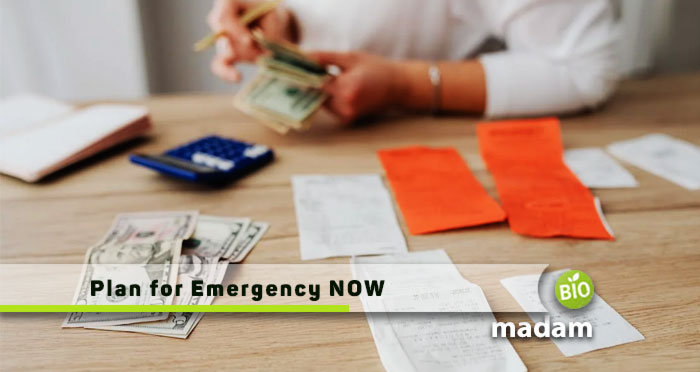One of the key aspects of one’s finances is learning how to make a realistic budget. It is frequently disregarded in favor of saving money or planning your investments. Budget planning should be the first and most important step in everyone’s journey toward financial freedom, even though investing and saving are undoubtedly essential.
Having a well-planned budget might make it much simpler for you as an individual to save money and invest it more wisely in the future. Before we look at how to make a realistic budget, it’s critical to comprehend why you require one in the first place.
The Monthly Budget
A budget for one month is a strategy for your monthly financial spending. Many recurring expenses, such as rent, electricity, credit card payments, and other loan obligations, happen on a monthly basis, making monthly budgeting common.
Achieving the ideal budget would have you spend less each month than what you make, giving you additional money for savings. When you set a monthly budget that exceeds your income, you must use savings or take out a loan to cover expenses.
Instead of relying on luck to pay for emergencies or necessary needs, a spending plan should make it simpler to prepare for expenses in advance. Budgets can also help you focus your spending by increasing your awareness of the way you spend your money.
Create an Emergency Fund
Life’s unexpected events might have an impact on your finances. You can fall ill, lose a job, or need to make an expensive home or car repair. Having an emergency fund is one of the best ways to deal with unforeseen financial shocks. Ideally, you would have enough money in this fund to pay for your basic living expenses without incurring debt.
Your emergency fund can be viewed as a form of insurance against unforeseen costs. It’s a fund you set up specifically to pay for daily living expenses while dealing with whatever emergency has arisen. Your emergency fund should include free cash in advance as well as enough money to meet your essential living costs. This will help you get through difficulties without incurring debt. Like any other bill, your emergency fund should be seen as a fixed expense. Making it a priority to routinely contribute to your emergency fund after allocating a certain amount to it in your budget will guarantee that you’re steadily increasing your emergency fund.

Figure out Your Income
Take-home pay is the sole source of revenue that matters when creating a budget. Forget about earnings before taxes. A good strategy to efficiently manage your funds is to make a monthly budget. You must first ascertain your income, or the sum of money you typically receive.
Establish the average monthly salary: When you are paid a constant amount, this is quite simple. Add up all of your paychecks for the month to get your net (after-tax) monthly income.
You can now confidently determine how much you usually spend each month on different expenses, from mortgage, rent, and vehicle payments to bills for utilities, insurance, prescriptions, groceries, dining out, and student and other loans. This is after gathering all pertinent accounting records and other documents. Don’t forget to include irregular expenses like property taxes, automobile registration, and insurance costs, which you may pay either yearly or semi-annually.
Be Cautious with Your Spendings
It almost seems as though we might have better prepared ourselves for what lay ahead of us if we had known this was going to happen. But if you take a few precautions in advance, you’ll always be ready for anything, and the greatest part is that it’s not quite as difficult as you might imagine.

Even though your monthly earnings may be close to one lakh rupees, you shouldn’t blow it all on extravagant living. We do not, however, advocate being frugal. We’re simply advising you to reduce your fixed costs to a minimum.
Your fixed expenses may include mortgage payments, loan EMIs, utility bills, food, prescription drugs, and childcare costs. You may simply reduce your leisure spending during an economic crisis if you can keep those expenses to a minimum.
Plan Ahead
The difference between what you really spend and what you wish to spend is where it all comes together. To estimate your spending over the next few months, use the list of changeable and fixed expenses that you have established. Then contrast that with your priorities and net income. Consider defining clear, realistic spending limits for each category of expenses.
You could choose to further categorize your expenditure by separating it into needs and wants. Gasoline, for instance, is considered a necessity if you commute to work every day. However, an ongoing music subscription might be a desire. This distinction becomes crucial when you’re trying to figure out how to redirect money toward your financial objectives.
Purchase Health Insurance
Many of us have a propensity to gamble with inadequate health insurance, either to lower the price or because we are overconfident in our ability to maintain good health. You should never place that wager.
So, health insurance is useful if something untoward occurs to our health. Although maintaining an emergency account is an excellent idea, medical expenses frequently increase dramatically. Therefore, having an alternate strategy for unanticipated events like purchasing health insurance will help you relax a little.
Find a Way for an Extra Money
The majority of the time, your principal job’s pay is insufficient to cover your living expenses. So it pays to have a side business or an extra source of income. As a result, you can put the money you make from them in savings for an emergency savings account, which won’t even affect your monthly spending plan.
If you receive additional funds, like tax refunds, financial gifts, or bonuses, you may instead choose to preserve them for an emergency savings account as opposed to using them for other purposes. Furthermore, you can rent out any spare rooms you have and put them on Airbnb if you have any. By doing so, you can develop a variety of revenue streams that will enable you to plan for emergencies.
While predicting problems in the future is impossible, you can safeguard your family and yourself from troubled times by doing some research and planning. When things are going well, it may seem trivial, but when an emergency arises, you should be prepared to handle it and move past it. As a result, if you haven’t already, start planning right away.

Hi, they call me Jenna, and I am also known for achieving a gold medal during my Ph.D. in science life. I always had a dream to educate people through my utmost writing hobby. So, I chose this blogging path, and Biomadam gave me this opportunity to present for them. I now stand to entertain you. Continue reading my articles & discuss if you’ve any confusion through the comment section below.

